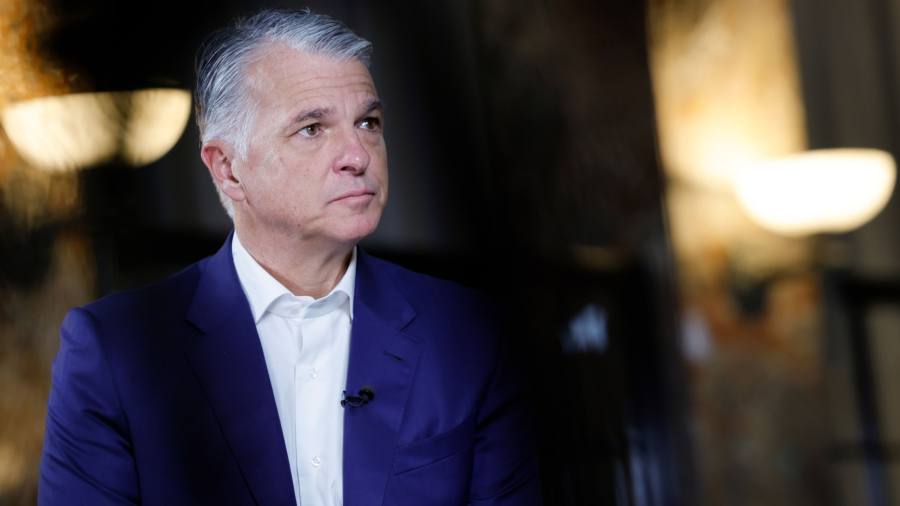Receive free Financial services updates
We’ll send you a myFT Daily Digest email rounding up the latest Financial services news every morning.
The Swiss government planned to install Sergio Ermotti as chair of Credit Suisse in the event it was forced to nationalise the beleaguered bank.
Ermotti was eventually brought back as chief executive of UBS in March, just days after it rescued Credit Suisse from collapse, in a deal that removed the need for Swiss authorities to take the 167-year-old lender under state control and test bank failure rules put in place after the global financial crisis.
Swiss authorities — including the finance ministry, national bank and financial regulator Finma — pushed hard in mid-March for UBS to take over its ailing rival, but they had been drawing up detailed contingency plans since Credit Suisse was hit by a damaging bank run in October, according to three people with knowledge of the preparations.
Among the plans was drafting a shortlist of financial executives who could be shuttled in as chair of Credit Suisse and would be allowed to bring in their own emergency executive team.
Ermotti was top of the list and talks between the 63-year-old banking executive and representatives of the Swiss government took place in the days leading up to Credit Suisse’s collapse, according to the same people.
But by the time negotiations were taking place over the fate of Credit Suisse during the weekend of March 18 and 19, Switzerland’s Federal Council had decided nationalising the bank would not be an option as similar moves by UK, Dutch and Irish governments following the global financial crisis had proved costly and time-consuming.
The alternative plan for dealing with Credit Suisse if the takeover by UBS fell through was resolution, a form of insolvency proceeding that has yet to be tested on a large global bank since the financial crisis.
Under the resolution plan, Finma would have taken control of Credit Suisse and the bank’s equity and additional tier 1 bonds would have been wiped out. Its bail-in bonds would have been converted to equity, said the people with knowledge of the plans.
Finma would have then made changes to Credit Suisse’s board and management team with the aim of accelerating the wind up of its investment bank — though slower than the plan currently being carried out by UBS — the people added.
The Swiss authorities had already prepared the ground for resolution by substantially drawing up a necessary decree. The Federal Council had also prepared legislation to allow Credit Suisse to be given a huge liquidity backstop as customers pulled tens of billions of assets a day.
The government set about firming up the measures following a bank run in October when Credit Suisse suffered more than $100bn of outflows in a matter of weeks following social media rumours about its financial health.
Ermotti had been chief executive of UBS for nine years up to 2020, but was brought back to replace his successor, Ralph Hamers, just days after the takeover of Credit Suisse was agreed, in recognition of the enormity of the job of combining the two banks.
The deal is the first time two global systemically important financial institutions have been brought together.
Ermotti is due to set out his plans for the combined business at UBS’s second-quarter results on August 31.
Credit Suisse, UBS, Ermotti, Finma and the Swiss finance ministry all declined to comment.
Read the full article here















